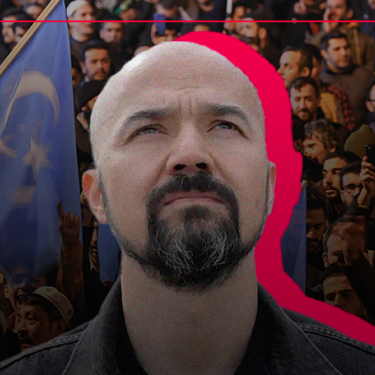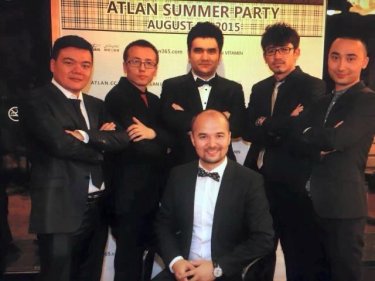How China targets Uyghur journalists abroad: the chilling story of a reporter exiled in the US

Reporters Without Borders (RSF) shares the testimony of a Uyghur journalist exiled in the United States, whose friends still in China were detained in retaliation for his work. His story illustrates the transnational repression carried out by the Chinese regime to extend censorship beyond its borders.
Even in exile, Uyghur journalists find no escape from repression. International news journalist Kasim Abdurehim Kashgar left China for the United States in 2017, due to the regime’s intense repression in the Xinjiang Uygur Autonomous Region in the northwest of the country. Yet, as Kashgar recounted to RSF, his persecution continues to this day.
In the wake of Kashgar’s emigration, his entourage in China was interrogated and, in some cases, imprisoned: "The Chinese authorities wanted me to stop my investigations and work for the regime's propaganda. In the months following my refusal, at least twelve people with whom I had worked in a language school were arrested and questioned about me. Some were even sentenced to up to seven years in prison," explains the journalist who investigates crimes committed against Uyghurs for the American public media Voice of America (VOA).
One friend, Mirkamil Ahmed, was sentenced to nine years in prison. While four of Kashgar’s former colleagues were sentenced to seven years' imprisonment on obscure charges, only one was released. The fate of the others remains unknown. Working under a pseudonym for many years, Kasim Abdurehim Kashgar revealed his identity in the documentary “From Fear to Freedom: A Uyghur's Journey,” broadcast by VOA in June 2023.
"This journalist’s chilling testimony illustrates the full extent of the transnational repression carried out by the Chinese regime to prevent exiled journalists from revealing the atrocities it is committing in Xinjiang. The international community must mobilise to protect journalists making the difficult decision to go into exile, as well as their families who remain in China.
Kashgar’s mental health suffered as his close circle was targeted. "After learning about their detention, I developed anxiety and depression,” he said. “I am asking the authorities to release them because they have nothing to do with my work." Despite the pressure, Kashgar remains determined to continue his investigations. Through extensive investigation, Kasim discovered his former colleagues were being detained. “It took me three years to reveal their arrests. I only decided to go public recently, when I had gathered solid evidence from five different and unrelated sources,” he told RSF.
Since 2016, Beijing has conducted a violent campaign of repression in Xinjiang province in the name of the "fight against terrorism," which international observers characterise as a “genocide,” and which does not only affect the Uyghur community. In 2024, the Chinese police arrested two journalists from the Kazakh minority working for the local public channel Xinjiang Television, as well as several other journalists whose identities have not yet been confirmed. According to RSF’s latest count, 79 journalists and press freedom activists are being held in Xinjiang, including Sakharov Prize winner Ilham Tohti.
China – the world's biggest prison for journalists and press freedom defenders, counting at least 121 detainees – is ranked 172nd out of 180 countries in RSF’s 2024 World Press Freedom Index.

Kasim Kashgar, centre front, is photographed with, from right, Semet Ababekri, Abdukadir Rozi, Akber Osman, Mirkamil Ahmed and Mehmut Abdukeyum, his currently detained colleagues, during a school party in Urumqi in August 2015.
